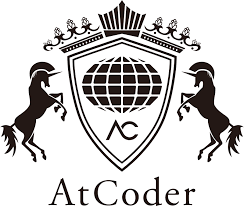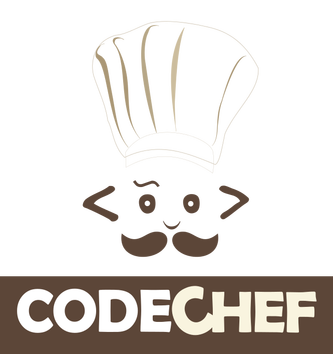Class 01: Introduction
01-06-2020
“Art of thinking”
- It’s a sport… a mind sport
- Participants are given problems and they have to create computer programs to solve them as quickly as they can
- There are many type of problems that we will learn later…
- Asymptotic Analysis
- Standard Template Library
- Brute Force
- Divide and Conquer
- Game Theory
- Title and limitations
- Description
- Input and Output (I/O)
- Examples
Example
Problem: You’re given n numbers and you’d like to find a pair of numbers with the greatest sum.
Constrains:
- \(2 \leq n \leq 10^8\)
- Time limit: 1 second
- Memory limit per test: 256 megabytes
Input:
The first line of each input a single integer n denoting the number of values. The next lines containg the n values.
Output:
The greatest sum
Example:
Input
10
3 4 2 30 104 1 35 104 239 -1
2
3 0
Output
343
3
- AC - Accepted
- WA - Wrong Answer
- TLE - Time Limit Exceeded
- RE - Runtime Error
- Choose a IDE or a text editor
- Select a programming language allowed in most online judges
- C++
- Python
- Java
- Kotlin
- Always prefer C++ for competitive programming
- Lower level \(\rightarrow\) More control
- It’s faster
- Makes better use of memory
- The STL is extremaly powerful
- Almost all learning resources in competitive programming are oriented to C++
- It has a strong community
Recommended readings:
- Training Camp Argentina 2019. Nivel Inicial. E/S + Intro
- Competitive Programming 3, chapter 1
- Errichto - How to test your solutions in Competitive Programming, on Linux
- An awesome list for competitive programming
You can find the contest here.
A: Watermelon
Problem A: Watermelon
The problem is bassically to find
\(a, b \mid 1 \leq a, b \leq n / 2 \land 2a + 2b = n\)
The following code use this idea.
Code
#include <bits/stdc++.h>
using namespace std;
int main () {
int n;
cin >> n;
bool ok = false;
for (int a = 1; a <= n / 2; a++) {
for (int b = 1; b <= n / 2; b++) {
if (2 * a + 2 * b == n) ok = true;
}
}
if (ok) cout << "YES\n";
else cout << "NO\n";
return (0);
}But, we can take \(b = 1\) (why?) and realize that the problem reduces to find:
\(a \leq 1 \leq a \leq n / 2 \land 2a = n - 2\)
The following code use this idea.
Code
#include <bits/stdc++.h>
using namespace std;
int main () {
int n;
cin >> n;
bool ok = false;
if (n - 2 >= 2 and n % 2 == 0) ok = true;
if (ok) cout << "YES\n";
else cout << "NO\n";
return (0);
}B: Threatre Square
Problem B: Theatre Square
Basically we need to find \(x * y\) where
\(x = min\{x \mid x * a \geq n\}\)
\(y = min\{y \mid y * a \geq m\}\)
Then, \[x = \lceil \frac{n}{a} \rceil \land y = \lceil \frac{m}{a} \rceil \]
And there is also the property:
\[\lceil a / b \rceil = \lfloor (a + b - 1) / b \rfloor\]
The following code use this idea.
Code
#include <bits/stdc++.h>
using namespace std;
int main () {
long long n, m, a;
cin >> n >> m >> a;
long long x = (n + a - 1) / a;
long long y = (m + a - 1) / a;
cout << x * y << '\n';
return (0);
}What happen if we use int instead of long long (try \(n = m = 10^9, a = 1\))
C: Way Too Long Words
Problem C: Way Too Long Words
Just implement what the problem say.
Code
#include <bits/stdc++.h>
using namespace std;
int main () {
int tc;
cin >> tc;
while (tc--) {
string s;
cin >> s;
if (s.size() > 10) cout << s.front() << s.size() - 2 << s.back() << '\n';
else cout << s << '\n';
}
return (0);
}




